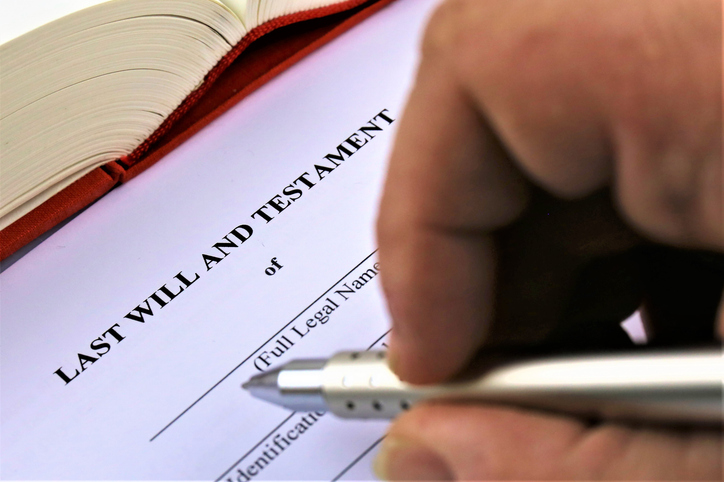Losing someone you love is terrible, but finding out their will doesn’t reflect what you expected can be even worse. If you think the will is unfair, invalid or was influenced by others, you may be able to contest it.
Contesting a will in Australia follows specific rules, and not everyone is eligible to do so. In this guide, we’ll walk you through the eligibility criteria, valid reasons to contest, the process and the outcomes.

Losing someone you love is terrible, but finding out their will doesn’t reflect what you expected can be even worse. If you think the will is unfair, invalid or was influenced by others, you may be able to contest it.
Contesting a will in Australia follows specific rules, and not everyone is eligible to do so. In this guide, we’ll walk you through the eligibility criteria, valid reasons to contest, the process and the outcomes.
Who Can Contest a Will?
Not everyone can challenge a will. The law restricts this to specific people who are generally:
- Spouses or de facto partners (current or former)
- Children, biological, adopted or stepchildren
- Grandchildren if they were financially dependent on the deceased
- Dependants, someone who was receiving financial or housing support
- People in a close personal relationship, long-term caregivers
Each state and territory has different definitions, so if you think you have a valid claim but are unsure, you should contact a will dispute lawyer as soon as possible to protect your rights.
Reasons to Challenge a Will
There are certain circumstances may justify a will dispute claim, including but not limited to:
1. Lack of Testamentary Capacity
A person must have full testamentary capacity when making or changing their will. If the deceased was suffering from dementia, severe mental illness or cognitive impairment at the time, the will may be challenged on these grounds.
Gather medical records, witness statements and expert opinions to support your claim.
2. Undue Influence or Pressure
If the deceased was manipulated or pressured into changing their will, it may not reflect their true wishes. Signs of undue influence include:
- Significant last-minute changes that benefit one person disproportionately
- The deceased being isolated from other family members before signing the will
- The will being drafted under suspicious circumstances, such as when the person benefiting was closely involved in its preparation
These types of claims need well-prepared evidence, so it is important to gather the necessary information as soon as possible.
3. Fraud or Forgery
A will must be created and signed voluntarily. If there is evidence of:
- A forged signature on the document
- A fake will being presented in place of a valid one
- A deception that led the deceased to sign something they didn’t understand
Then, the will may be declared invalid.
4. Improper Execution
A will must meet formal legal requirements, including being signed in the presence of two independent witnesses. If it lacks proper execution, it may be challenged in court.
5. Inadequate Provision for Eligible Beneficiaries
In many cases, people contest a will because they have been left out or received an unfair share despite having financial dependence on the deceased. This is called a Family Provision claim and applies when:
- A spouse, child, or dependent has been excluded from the will
- The inheritance does not provide adequate financial support
- The distribution is significantly unbalanced compared to similar beneficiaries
When Should You Contest a Will?
Time limits for contesting a will depend on the state or territory:
| State | Time Limit |
|---|---|
| New South Wales (NSW) | 12 months from the date of death |
| Victoria | 6 months from probate being granted |
| Queensland | 6 months from death to notify the executor, 9 months to file a claim |
| Western Australia, South Australia, ACT | 6 months from probate |
| Tasmania | 3 months from probate |
| Northern Territory | 12 months from death |
Filing outside these deadlines may be allowed in exceptional circumstances, such as if the claimant was unaware of the will. It’s wise to get legal advice from an expert will dispute lawyer to evaluate your eligibility and success chances.
Step-by-Step Guide to Contesting a Will
If you’re eligible to make a will dispute claim, here are the next steps to follow:
Step 1: Get Legal Advice
Get legal advice early in the process. A wills and estates lawyer can assess your claim, explain your options, and help you understand the costs and risks before you proceed. This early advice will give you peace of mind and direction.
At Wyatts. we have a team of will dispute lawyers to guide you through the process, so you don’t miss any important details. Legal processes can be complicated, and one mistake can make or break your case. Probate is the legal validation of a will. You can contest a will before probate is granted, but getting assets back can be more difficult if the estate has been distributed.
Step 2: File a Family Provision Claim (If You’re Seeking More Inheritance)
If you were financially dependent on the deceased and think you were left out or not provided for, you can file a Family Provision Claim in the relevant court.
Step 3: Gather Strong Evidence
To support your claim, you will need:
- Medical records if challenging mental capacity.
- Previous versions of the will if you think the changes were fraudulent.
- Financial records to prove dependency.
- Witness testimonies if undue influence is suspected.
Step 4: Mediate / Go to Court
Many will disputes are settled through mediation, where all parties try to reach a fair agreement without going to court. If mediation fails, the case goes to a court hearing.
If the dispute is not settled through mediation, the matter will be decided in court. A judge will consider your relationship with the deceased, your financial needs and the deceased’s intentions and reasoning for their decisions.
Based on the proceedings, you can expect the following outcomes:
- Amending the will to provide a fairer share to you (the claimant)
- Declaring the will invalid, reverting to a previous version or distributing assets under intestacy laws
- Dismissing the claim if the court finds no valid grounds
Court cases can be expensive and time-consuming, so mediation is the preferred option when possible.
Factors That Influence Provision
The amount of provision sought in a will dispute varies greatly. Some claimants seek a significant share of the estate, while others may ask for a modest financial settlement or even a non-monetary outcome.
The court considers several factors when determining how much a claimant may get, including:
- The identity of the claimant and their relationship to the deceased.
- The need and personal circumstances of the claimant. For example, a wealthy claimant will get less than a family member in dire financial circumstances.
- The claimant’s contributions to building or maintaining the deceased’s wealth.
- Their behaviour and conduct throughout the legal proceedings.
- Any prior financial support or gifts received from the deceased before their passing.
- The overall value of the estate and how much is available for distribution. Since many will disputes are about financial dependence, claimants who are financially stable will get less than those who can show a genuine need for support.
How Much Does It Cost to Contest a Will?
The cost to challenge a will varies greatly, depending on the complexity of the case, the state where the claim is made and how long it takes to settle. Costs can range from a few thousand to hundreds of thousands of dollars.
Regardless of the timeline, claimants should budget for:
- Evidence collection and document review
- Legal fees for representation
- Mediation costs (if applicable)
- Court filing fees for documents such as affidavits and notices
Given the cost involved it’s best to get legal advice early to weigh up the costs against the chances of success.
What Are the Success Rates for Will Disputes?
A study conducted in 2015 by the University of Queensland, Queensland University of Technology, and Victoria University found that 74% of family provision claims in Australia are successful. In Queensland, that success rate rises to 77%.
When a claim is successful, the probate court may alter the distribution of assets, ensuring the claimant receives their rightful share. However, unsuccessful claims can leave the claimant without any additional inheritance, making it crucial to have a strong case before proceeding.
In some instances, legal costs may be covered or reimbursed, particularly when financial hardship is a factor. This allows individuals with limited resources to pursue their rightful claim without being deterred by legal expenses.
Contact Our Experienced Will Dispute Lawyers to Successfully Contest a Will
While it’s legally possible to contest a will without hiring a lawyer, the process is complex, and professional guidance greatly improves your chances of success.
At Wyatts, our will dispute lawyers will help you navigate the complexities of contesting a will. They will assess your eligibility, gather strong evidence, and ensure all legal documents are filed on time. Our team is dedicated to supporting you throughout the process, ensuring compliance with state-specific laws and deadlines.
Our expertise will increase your chances of a successful claim while ensuring compliance with state-specific laws and deadlines. We work on a “no win, no fee” basis, so you will only pay if your claim is successful.
Contact our will dispute lawyers at 1800 773 880 now or submit an online enquiry to get started!






